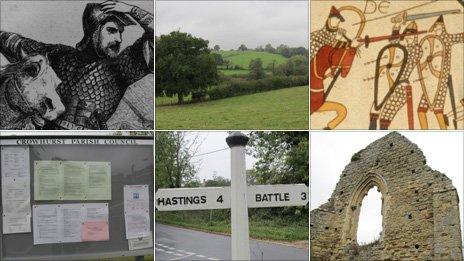Battles of Britain: Vote for which one changed us most
- Published
The British Isles have seen countless battles, campaigns and wars. But which one affected us the most?
This year is rich with the anniversaries of significant battles - Waterloo, Gallipoli and Agincourt.
But during the past 2,000 years, the British Isles has been riven by conflict, being remembered with the 75th anniversary of the Battle of Britain, the recent reburial of Richard III and the upcoming 950th anniversary of Hastings.
So which is the most important battle ever fought here? A clash of arms that produced not only a winner and a loser but perhaps changed everything that came after?
The vote is now closed and results are at the bottom of the page.

Boudica's revolt - Empire on the edge
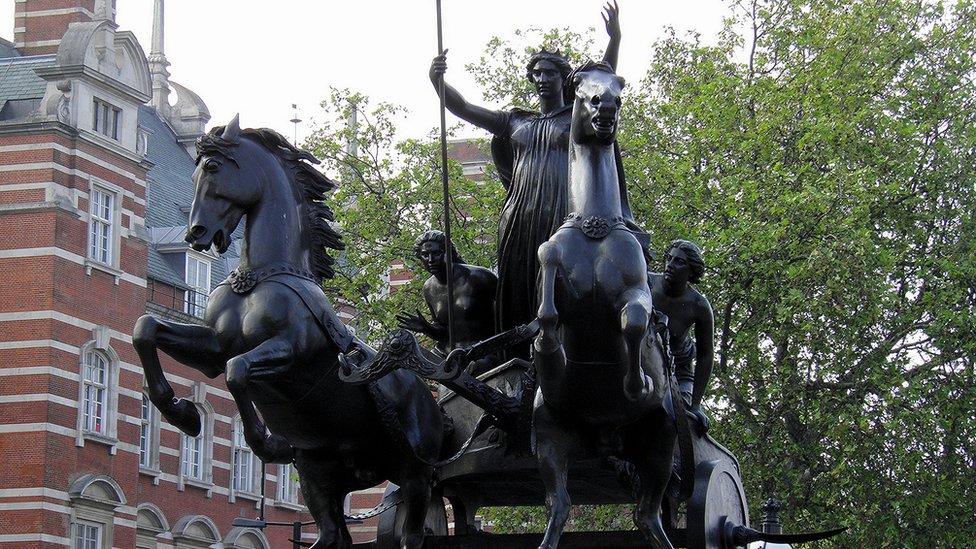
Just 18 years after the invasion, Roman progress in Britain was dealt a huge blow when Queen Boudica rallied native tribes to a devastating rebellion.
Adrian Murdoch, Roman military historian and journalist, said: "Her revolt almost stopped the Roman Empire in its tracks.
"Boudica had reasons to be angry - double-crossed over land and her capital sacked, then beaten and her two daughters raped."
After the destruction of the best part of a legion and three major towns, the Roman army made its stand.
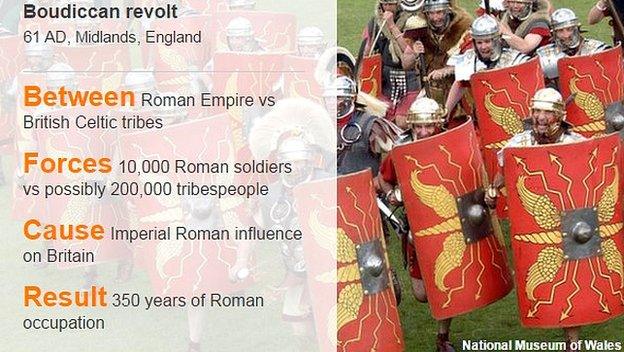
Boudiccan revolt
61 AD, Midlands, England
-
Between Roman Empire vs British Celtic tribes
-
Forces 10,000 Roman soldiers vs possibly 200,000 tribespeople
-
Cause Imperial Roman influence on Britain
-
Result 350 years of Roman occupation
Mr Murdoch said: "The fate of the province was in the balance - with the emperor Nero considering abandoning the island. But thanks to superior military discipline, the Romans won. Classical authors claim 80,000 Britons died to 400 Roman losses.
"Had Boudica's revolt worked, the English Channel would have been as much of a barrier between barbarism and civilisation as the Rhine.
"Britain would have lost the enduring influence of 350 years of Roman rule, its culture, building and commerce.
"And while she lost, Boudica became a personification of Britannia, complete with a statue outside the Houses of Parliament."

Brunanburh - Birth of England?

As Roman power faded, warring tribes and invaders competed for supremacy. After the successes of Anglo-Saxon King Alfred the Great against the Vikings in Wessex, his grandson Æthelstan extended his influence north and east, gradually cementing the concept of one "Angle-land".
But this development sparked fear and rivalry in neighbouring kingdoms and an alliance was formed to crush it.
Professor Michael Livingston, editor of Brunanburh: A Casebook, said: "Brunanburh may well be the most important battle in English history that you've never heard of.
"King Æthelstan faced an allied force that included at least five foreign kings, including those of Dublin, Alba, and Strathclyde — an alliance whose united purpose was to destroy the Anglo-Saxon kingdom that would become England.
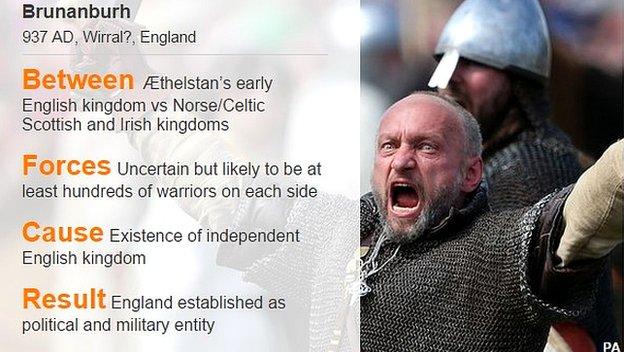
Brunanburh
937 AD, Wirral?, England
-
Between Æthelstan’s early English kingdom vs Norse/Celtic Scottish and Irish kingdoms
-
Forces Uncertain but likely to be at least hundreds of warriors on each side
-
Cause Existence of independent English kingdom
-
Result England established as political and military entity
"In addition to its obvious geo-political importance, Brunanburh was probably one of the largest battles of its age: a generation later chroniclers like Athelweard referred to the event as simply 'the Great War'."
Hours of vicious fighting devastated both sides, with traditional poems saying five kings and seven earls among the invaders were killed.
Æthelstan was the victor and his rivals fled, only the damage meant he could not press home his advantage. But Alfred's legacy had been saved and a unified, independent Anglo-Saxon kingdom would have time to take root.
With the passing of centuries the location of Brunanburh has become uncertain. Prof Livingston said: "Where it happened, however, is of secondary importance to the nation that grew from its bloodied soil."

Hastings - The last invasion
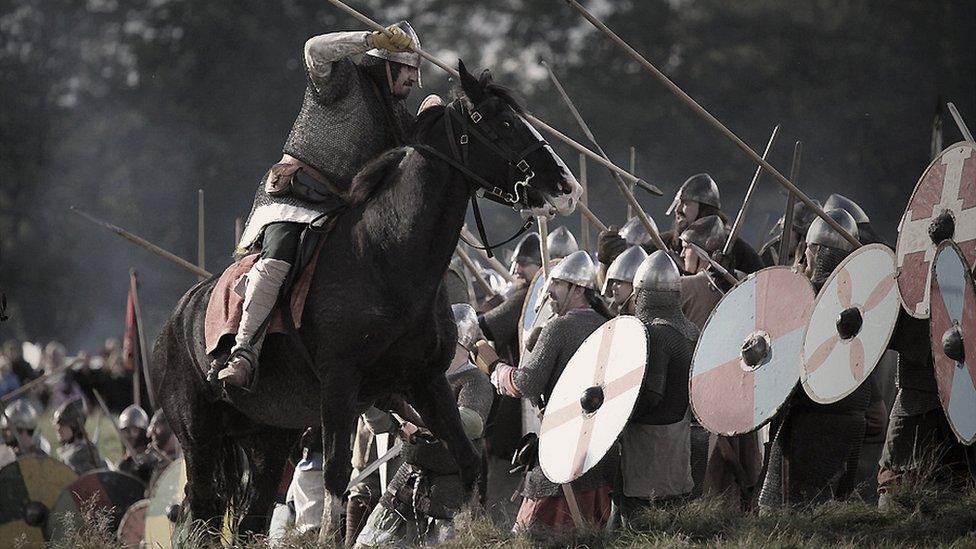
Murky politics and ruthless ambition led Duke William of Normandy to face Anglo-Saxon King Harold on a hillside in Sussex.
Harold's men were exhausted from a forced march of about 500 miles (800km) to York and back, William had the smallest toehold on English soil.
Each was a hardened warrior, each claimed the throne of England, each knew no mercy would be shown.
Julian Humphrys, development officer of the Battlefields Trust, said: "The English fought doggedly on foot, their shields held closely together to form a solid wall but the relentless attacks of William's archers, foot soldiers and mounted knights eventually wore them down.
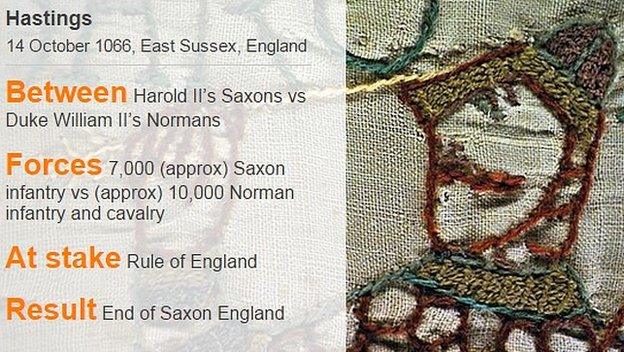
Hastings
14 October 1066, East Sussex, England
-
Between Harold II’s Saxons vs Duke William II’s Normans
-
Forces 7,000 (approx) Saxon infantry vs (approx) 10,000 Norman infantry and cavalry
-
At stake Rule of England
-
Result End of Saxon England
"King Harold and much of the Anglo-Saxon leadership fell that day and with them died England's best chance of repelling the Normans.
"1066 is probably the best-known date in British history. And rightly so, as William's invasion not only decided who would rule England but also led to fundamental changes in English society.
"Land ownership was transformed with the replacement of the old Saxon aristocracy by a new Norman elite, our language was irrevocably altered with the addition of so many French words, and most of our castles and cathedrals can trace their origins back to the Norman conquest.
"The battle also changed England's place in Europe. Before Hastings it was closely linked to Scandinavia - after Hastings it was firmly part of Western Europe."

Bannockburn - The limit of power
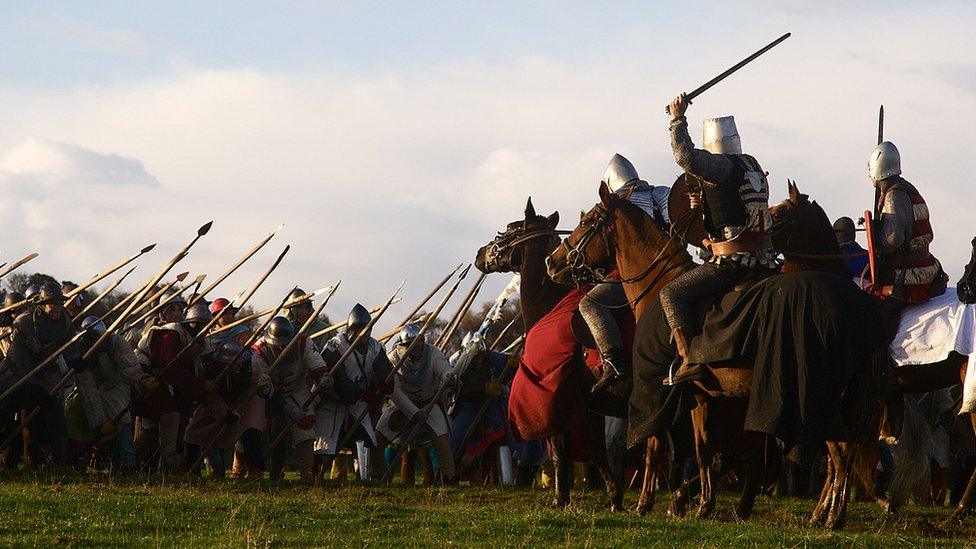
The English kingdom and Scottish kingdoms had wrestled with each other for centuries but with the aggressive Edward I - "Hammer of the Scots" - it looked as if the southern realm would triumph.
But Robert the Bruce led a fierce resistance and forced the less imposing Edward II to march a huge army to a marshy field near Stirling.
Professor Michael Brown, from the University of St Andrews's School of History, said: "Bannockburn was the real battle for Britain.
"The two kings on the island, Robert Bruce and Edward II, led their armies in a fight which had a large influence on the nature of Britain. Would it be a single realm, whose character was overwhelmingly English, or would different traditions and loyalties continue to flourish?"
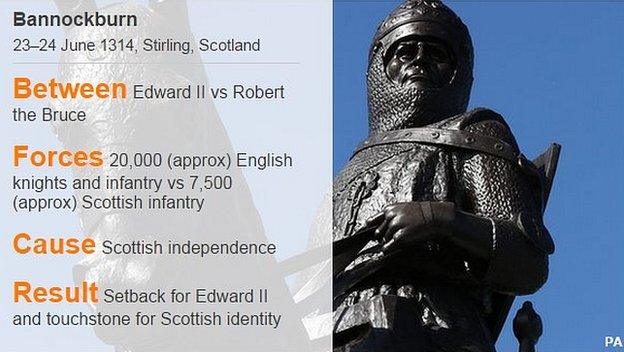
Bannockburn
23–24 June 1314, Stirling, Scotland
-
Between Edward II vs Robert the Bruce
-
Forces 20,000 (approx) English knights and infantry vs 7,500 (approx) Scottish infantry
-
Cause Scottish independence
-
Result Setback for Edward II and touchstone for Scottish identity
Edward's badly-led army found itself out-manoeuvred and unable to break the Scottish spear formations. Over two days of bitter clashes, the English army was worn down and eventually broke.
Prof Brown said: "Robert's victory meant not just the continuation of the Scottish kingdom but that Scotland would develop separately from the rest of the island for the next 400 years, maintaining and pursuing its own course in terms of government, law, religion and relations with the peoples of Europe.
"The Scottish state and society which grew between 1314 and 1707 could not be subsumed within a united kingdom in the way that high medieval Scotland might have been.
"Unlike most medieval battles, Bannockburn is not treated as a remote event. For 700 years Bannockburn has also been used as a potent symbol of Scotland's place amongst the peoples of Europe.
"Like other countries more used to defeat against their larger neighbours, Bannockburn has retained a central significance as proof of Scotland's right to exist. In this way, the battle south of Stirling in 1314 did not simply help shape the past relationships between states, it will continue to exert an influence on the future of these islands."

Bosworth - Twilight of the Middle Ages
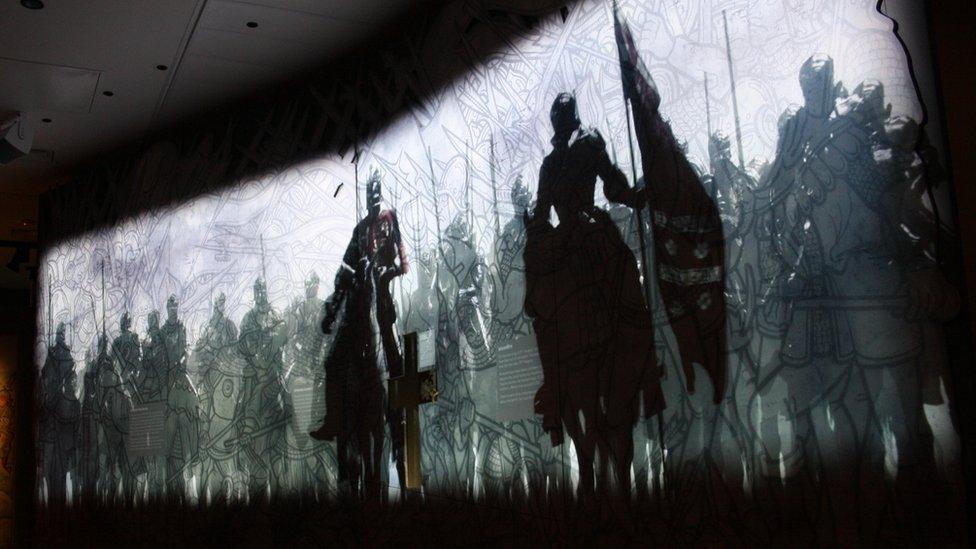
After decades of on-off civil war, Edward IV had brought some stability to England. On his death, his brother Richard III took the crown but could not preserve peace.
Henry Tudor, whose thin claim to the throne nonetheless focused opposition to Richard, brought a rag-tag army to the Midlands to face royal forces.
In the early clashes, Richard's larger army failed to sweep his opponents from the field. Two significant formations, under the Earl of Northumberland and Lord Stanley, did not commit to the fight.
Richard gambled on a spectacular cavalry charge to kill Henry but Stanley ambushed his knights. Richard was hacked down in the thick of the fighting.
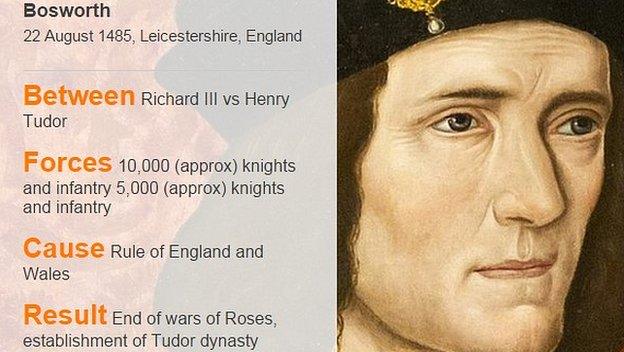
Bosworth
22 August 1485, Leicestershire, England
-
Between Richard III vs Henry Tudor
-
Forces 10,000 (approx) knights and infantry 5,000 (approx) knights and infantry
-
Cause Rule of England and Wales
-
Result End of wars of Roses, establishment of Tudor dynasty
Chris Skidmore, author of Bosworth: Birth of the Tudors, said: "The fact that Bosworth was the last battle in which an English king died on a battlefield at home, together with it marking the end of the Plantagenet dynasty and the birth of the Tudors, does, I believe, mark it out as a seismic event in English history.
"A watershed between the medieval and early modern worlds, in which the death of a king represents more than the end of Richard III, but also the dying values of chivalry."
Mr Skidmore added: "The dawn of the Tudor era brought an end to decades of instability that had scarred the 15th Century. From now on, the English monarchy would only grow in strength as the state established itself above the factionalism and infighting of the nobility.
"Within 50 years, England's kings controlled not only their subjects' bodies, but also their souls after Henry VIII enacted the break with Rome and the dissolution of the monasteries. The fabric of medieval life would be irrevocably torn forever."

Spanish Armada - Politics of God
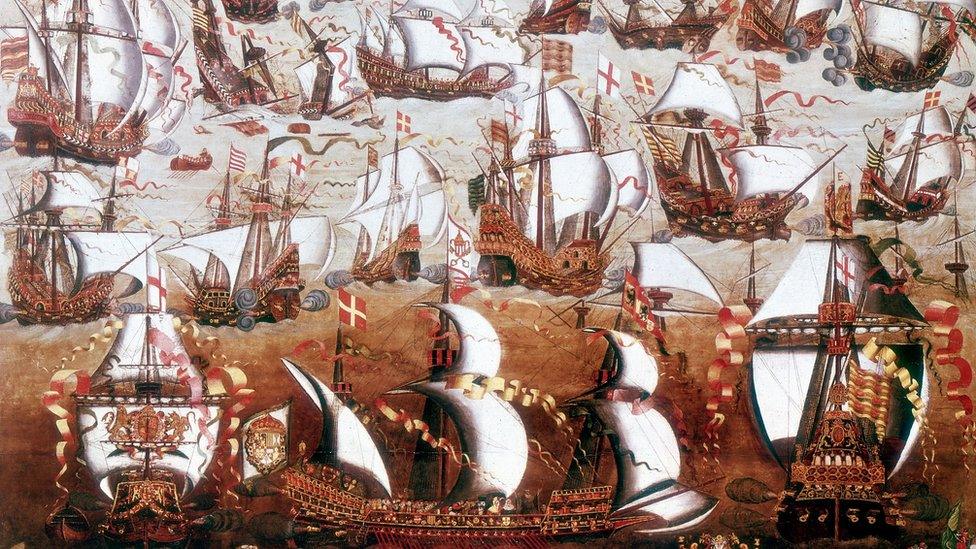
Europe's superpower, Catholic Spain, viewed Elizabethan England as a practical and ideological threat. Its armies fought against them on the Continent, its ships raided trade from the New World and it fostered the heretical Protestant faith.
The plan was for a fleet, the Armada, to take Spain's European army and land it in England to impose King Philip's power.
Robert Hutchinson, historian and author of The Spanish Armada, said: "This campaign of 1588 changed the course of European history. If it had worked the future of Elizabeth I and fledgling Protestant England would have looked very black indeed.
"If his battle-hardened troops had managed to storm ashore near Margate in Kent, they could have been in the streets of ill-defended London within a week.
"England would have reverted to the Catholic faith and there may not have been a British Empire to come. We might be still speaking Spanish today."
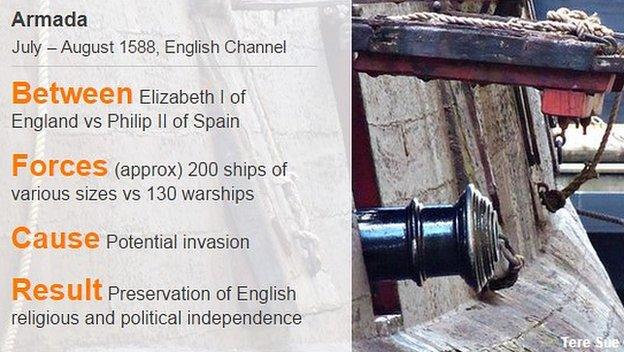
Armada
July – August 1588, English Channel
-
Between Elizabeth I of England vs Philip II of Spain
-
Forces (approx) 200 ships of various sizes vs 130 warships
-
Cause Potential invasion
-
Result Preservation of English religious and political independence
But the Armada failed. Spectacularly. It sailed through the English Channel with no real way to pick up the army, and then round the Scottish and Irish coasts, becoming more diseased and battered.
This was less because of the queen's valiant sailors and more due to "appalling weather, poor planning and flawed strategy and tactics", as Mr Hutchinson puts it.
He added: "Moreover, those dangerous days of July and August 1588 united a divided England. Nearly half of Elizabeth I's two million subjects were Catholic but confronting a powerful invader created a new sense of nationhood.
"The defeat of the Spanish Armada gave England confidence to seek new trading opportunities in far flung corners of the world, such as the founding of the East India Company in 1600 which later laid the foundations of the British Empire in India and the Far East."

Naseby - Destruction of Divine Right
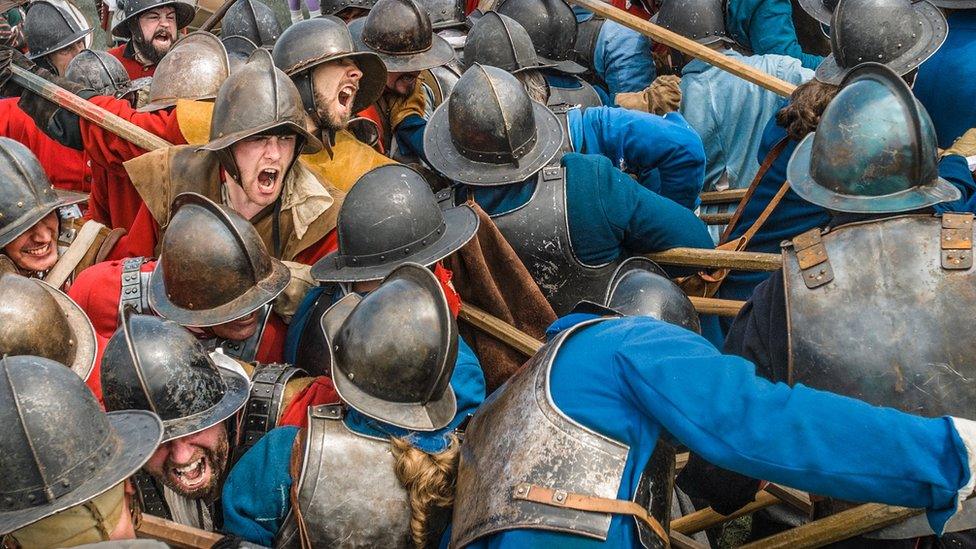
In 1645, after three bloody years of fighting, both sides in the English Civil War still seemed evenly matched. That would change at Naseby.
Martin Marix Evans, author and Naseby expert, said: "At its heart the Civil War was a clash of fundamentally opposed ideologies - belief in absolute monarchy against an embryonic sense of democracy.
"But while the king's court and generals had squabbled, the Parliamentarians, including Oliver Cromwell, had been building the New Model Army.
"This was centred on loyalty to the nation rather than region and based promotion on ability rather than birth."
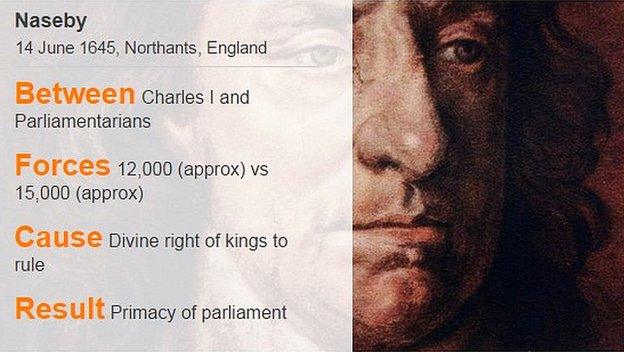
Naseby
14 June 1645, Northants, England
-
Between Charles I and Parliamentarians
-
Forces 12,000 (approx) vs 15,000 (approx)
-
Cause Divine right of kings to rule
-
Result Primacy of parliament
Despite initial successes, the king's forces were worn down and eventually cracked in the face of better co-ordination and discipline.
Mr Marix Evans said: "Hundreds were killed and thousands captured. The loss of so many veterans and their equipment meant Charles's defeat became a matter of time.
"The battle ended centuries of autocratic monarchy and set Britain on a course of democratic evolution which continues to this day.
"Other battles decided which king ruled the people, this one decided how the people were ruled."

Boyne - Three wars, one battle
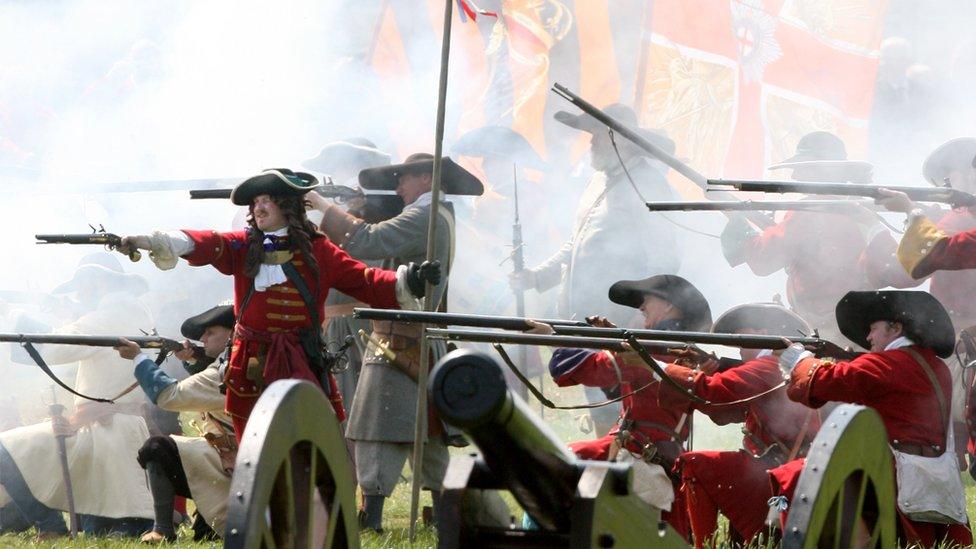
James II had been deposed for trying to restore absolute monarchy in the British Isles. His attempt to regain the throne was used as a strategic move in French attempts to dominate Europe, drawing on the religious divide in Ireland to provide support.
James's Catholic forces met those of the new Protestant king, William III, just north of Dublin and in a tightly contested battle the Jacobite army was pushed back and their king fled the field and the country.
Dr Harman Murtagh, president of the Military History Society of Ireland, said: "The victory consolidated the position of William and his wife Mary on the English thrones, which in practice also represented a further advance of parliamentary control over the executive."
Without James, the Catholic army was finally destroyed in 1691.
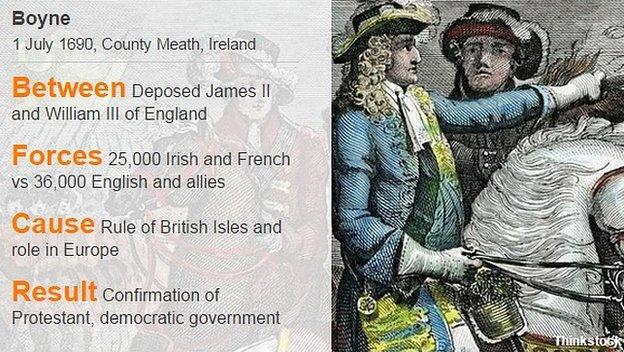
Boyne
1 July 1690, County Meath, Ireland
-
Between Deposed James II and William III of England
-
Forces 25,000 Irish and French vs 36,000 English and allies
-
Cause Rule of British Isles and role in Europe
-
Result Confirmation of Protestant, democratic government
Dr Murtagh said: "The three-year Irish campaign distracted William and his resources from the Continent, which was of considerable assistance to King Louis XIV in his war with the Grand Alliance of his enemies.
"In Ireland William's success consolidated the dominance of the newer Protestant population over the defeated Catholic majority.
"Catholics were subsequently subjected to penal laws that long denied them political rights and impeded their economic recovery, injustices that have not been forgotten.
"In Northern Ireland thousands of Protestants still march each July to commemorate William's victory at the Boyne water."

Battle of Britain - The Few
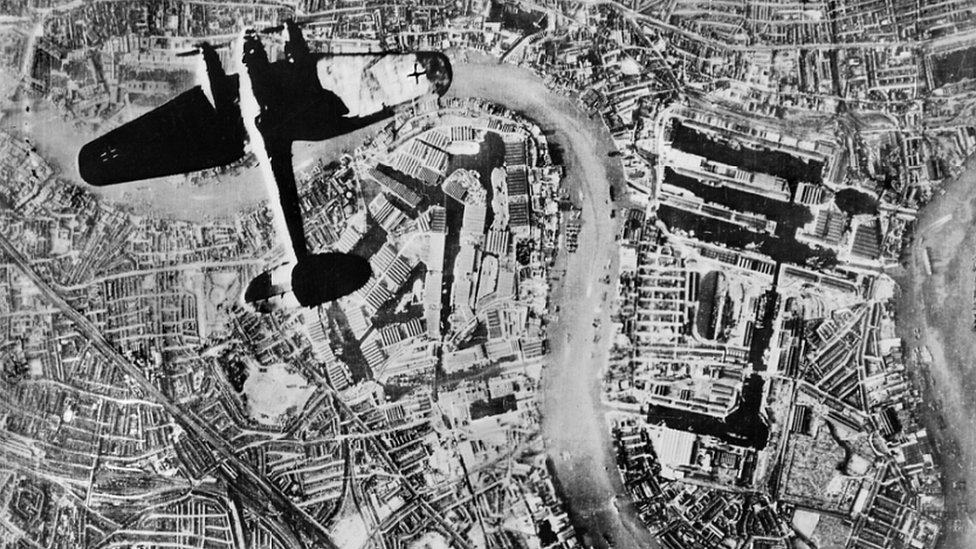
Most of Europe had been cowed, the Soviets were at bay, the US undecided. Britain was defiant but wounded. The Nazi war machine was at the Channel and seemed unstoppable.
But the RAF had prepared itself for just such an attack, linking fighter airfields with control centres and radar stations. Armed with the nimble Spitfire and tough Hurricane, the defence would be more potent than any the Luftwaffe had faced before.
Ross Mahoney, aviation historian at the Royal Air Force Museum, said: "Without control of the air Germany would not be able to launch an invasion. Hitler himself ordered the RAF must be 'morally and physically' unable to contest a German crossing.
"Herein lies the Battle of Britain's significance. By denying the Luftwaffe control of the skies over Britain, the RAF ensured during the vital months of July to October invasion was held off and the country was able to build up its strength militarily, diplomatically and politically."
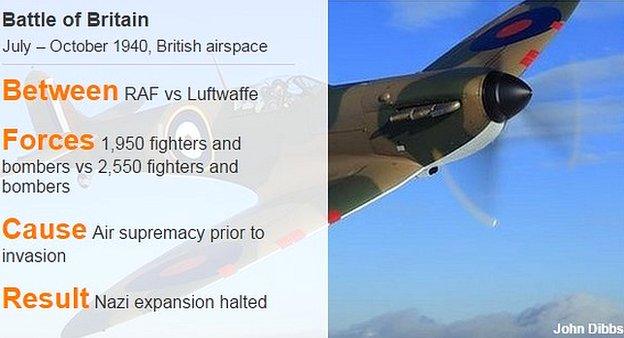
Battle of Britain
July – October 1940, British airspace
-
Between RAF vs Luftwaffe
-
Forces 1,950 fighters and bombers vs 2,550 fighters and bombers
-
Cause Air supremacy prior to invasion
-
Result Nazi expansion halted
Over a long summer, the RAF and its multinational pilots did enough damage, and preserved enough of its strength, to remain unbowed.
Mr Mahoney said: "While some historians have recently questioned the traditional 'narrow margin' narrative, this ignores the simple fact Britain was the British Empire's centre of gravity and had the Luftwaffe achieved control of the air then Hitler certainly would have attempted an invasion.
"Had Hitler succeeded it is unlikely that America would ever have joined the war against Germany.
"Simply put, the RAF stopped invasion from ever being a prospect and ensured Britain was the unsinkable aircraft carrier which projected the Allied military power to defeat Germany."

To vote for the battle that changed us the most, follow this link http://bbc.in/1K5frLT, external
- Published18 August 2015
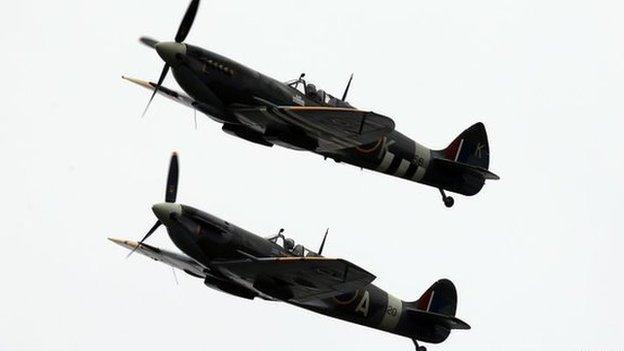
- Published13 July 2015
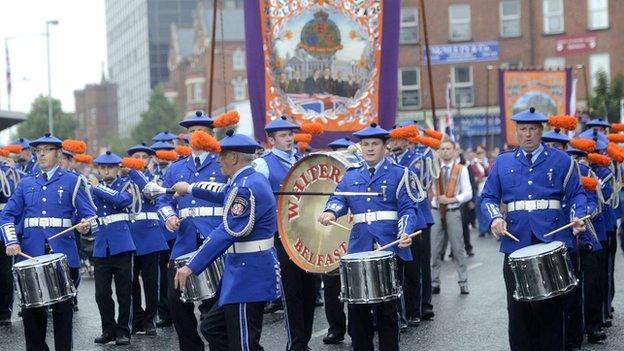
- Published23 March 2015
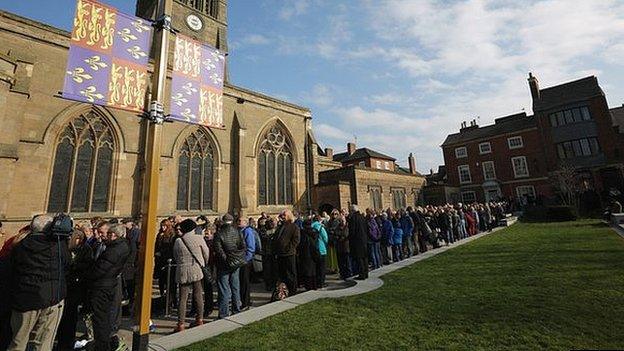
- Published31 January 2015
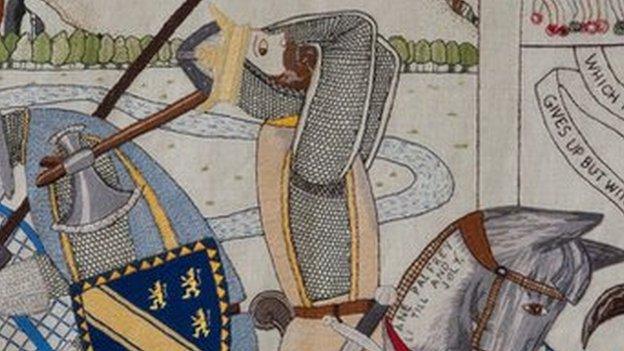
- Published26 July 2014
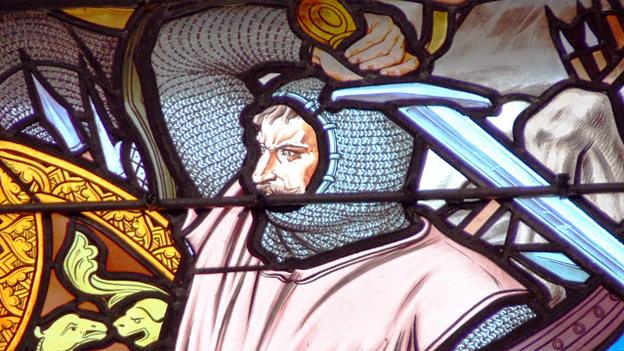
- Published28 May 2013
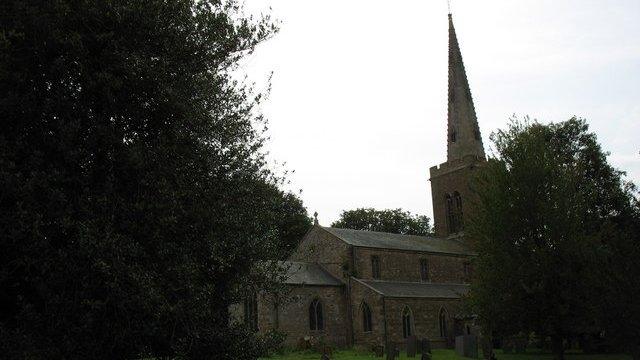
- Published17 October 2011
